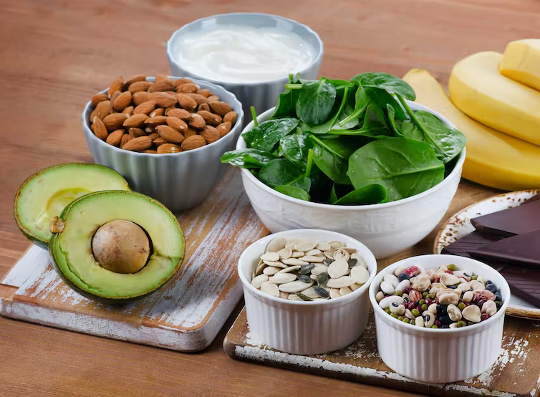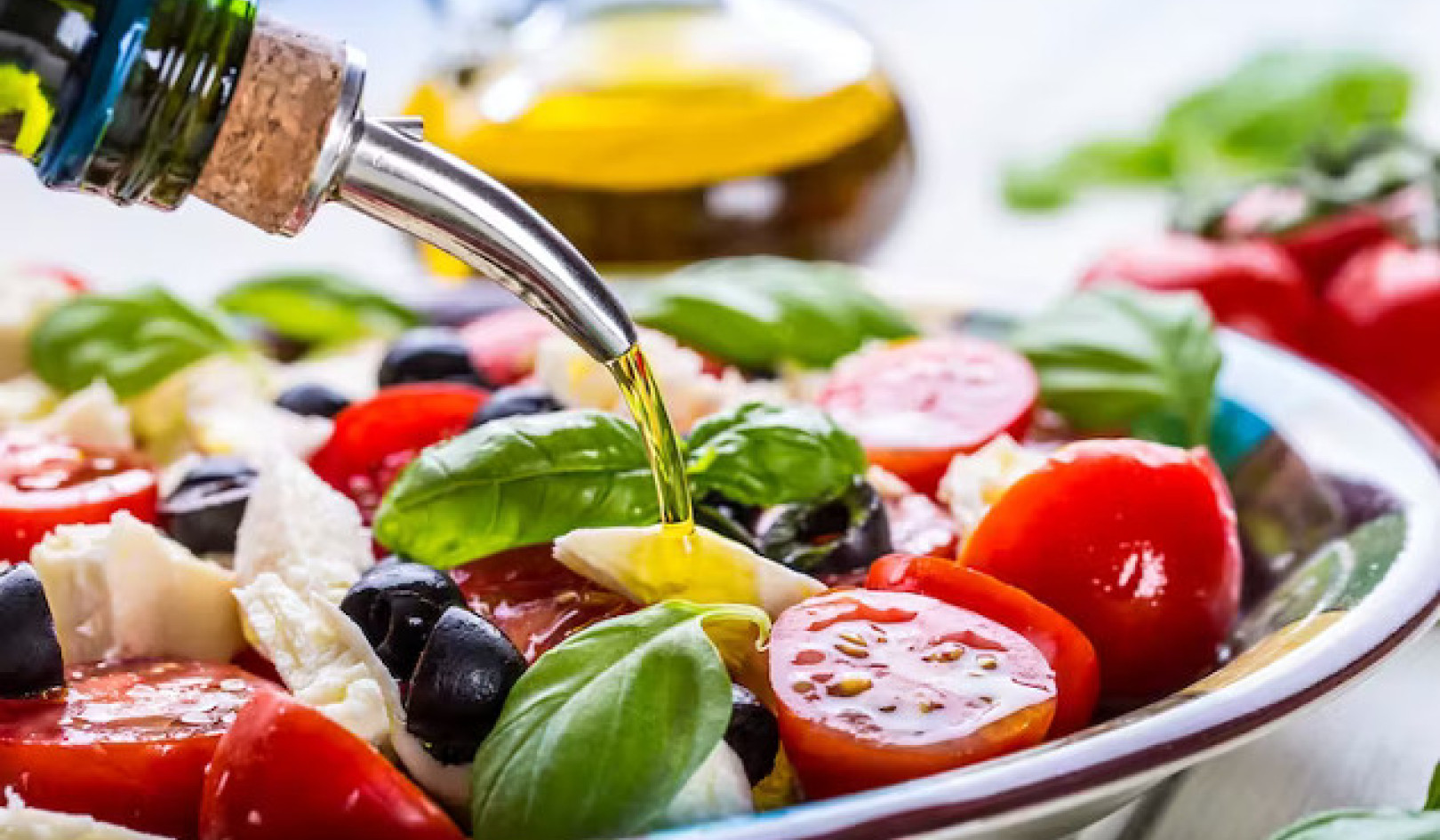
Magnesium has many important functions in the body. Tatjana Baibakova/ Shutterstock
There’s been a lot of chat on social media over the past few months about the importance of magnesium supplements. Many suggest that symptoms such as trouble sleeping, tense muscles and low energy are all signs you’re deficient and should be taking a magnesium supplement.
As it turns out, many of us probably are somewhat deficient in magnesium. According to research, most aren’t consuming the recommended amount of magnesium to support our body’s needs. It’s also estimated that in developed countries, between 10-30% of the population has a slight magnesium deficiency.
Magnesium is one of the many micronutirents the body requires to remain healthy. It’s essential for helping more than 300 enzymes carry out numerous chemical processes in the body, including those that produce proteins, support strong bones, control blood sugar and blood pressure and maintain healthy muscles and nerves. Magnesium also acts as an electrical conductor that helps the heart beat and contracts muscles.
Considering how important magnesium is for the body, if you aren’t getting enough it can eventually lead to a range of health problems. But even though most of us are probably somewhat deficient in magnesium, that doesn’t mean you need to reach for supplements to make sure you’re getting enough. In fact, with the right planning, most of us can get all the magnesium we need from the foods we eat.
Signs of a deficiency
Most people with a magnesium deficiency are undiagnosed because magnesium levels in the blood don’t accurately reflect how much magnesium is actually stored in our cells. Not to mention that signs your magnesium levels are low only become obvious by the time you have a deficiency.
Symptoms include weakness, loss of appetite, fatigue, nausea and vomiting. But the symptoms you have and their severity will depend on just how low your magnesium levels are. Left unchecked, a magnesium deficiency is associated with an increased risk of certain chronic illnesses, including cardiovascular disease, osteoporosis, type 2 diabetes, migraine and Alzheimer’s disease.
While anyone can develop a magnesium deficiency, certain groups are more at risk than others – including children and adolescents, older people and post-menopausal women.
Conditions such as coeliac disease and inflammatory bowel syndrome, which make it difficult for the body to absorb nutrients, may make you more prone to magnesium deficiency – even with a healthy diet. People with type 2 diabetes and alcoholics are also more likely to have low magnesium levels.
Furthermore, the vast majority of people in developed countries are at risk of a magnesium deficiency due to chronic illnesses, certain prescription drugs (such as diuretics and antibiotics, which deplete magnesium levels), declining magnesium contents in crops and diets high in processed foods.
You can get enough in your diet
Given the many problems that can happen due to low magnesium levels, it’s important to make sure you’re getting enough in your diet.
The recommended amount of magnesium a person should aim to consume daily will depend on their age and health. But in general, men aged 19-51 should get between 400-420mg daily, while women should aim for 310-320mg.
Although fruit and vegetables now contain less magnesium than they did 50 years ago – and processing removes around 80% of this mineral from foods, it’s still possible to get all the magnesium you need in your diet if you plan carefully. Foods such as nuts, seeds, whole grains, beans, green leafy vegetables (such as kale or broccoli), milk, yoghurt and fortified foods all contain plenty of magnesium. One ounce of almonds alone contains 20% of the daily magnesium requirements of adults.
While most of us will be able to get all the magnesium we need from the foods we eat, certain groups (such as older adults) and those with certain health conditions may need to take a magnesium supplement. But it’s important to speak with your doctor before starting supplements.
While magnesium supplements are safe in their suggested dosages, it’s important to only take the recommended amount. Taking too much can cause certain side-effects, including diarrhoea, low mood, low blood pressure. It’s also vital that those with kidney disease do not take them unless they have been prescribed.
Magnesium can also alter the effectiveness of several medications, including some common antibiotics, diuretics and heart medications, alongside over-the-counter antacids and laxatives. This is why it’s important to consult a doctor before starting magnesium supplements.
Magnesium supplements aren’t a quick fix. While they may be necessary at times, they won’t address the root causes of your deficiency, such as certain health conditions that may be contributing to low levels. This is why it’s important to focus on maintaining a healthy lifestyle, which includes exercise, good sleep and eating a balanced diet. Not to mention that vitamins and minerals are better absorbed by the body when they come from whole foods.![]()
About The Author
Hazel Flight, Programme Lead Nutrition and Health, Edge Hill University
This article is republished from The Conversation under a Creative Commons license. Read the original article.

Related Books:
Salt, Fat, Acid, Heat: Mastering the Elements of Good Cooking
by Samin Nosrat and Wendy MacNaughton
This book offers a comprehensive guide to cooking, focusing on the four elements of salt, fat, acid, and heat and offering insights and techniques for creating delicious and well-balanced meals.
Click for more info or to order
The Skinnytaste Cookbook: Light on Calories, Big on Flavor
by Gina Homolka
This cookbook offers a collection of healthy and delicious recipes, focusing on fresh ingredients and bold flavors.
Click for more info or to order
Food Fix: How to Save Our Health, Our Economy, Our Communities, and Our Planet--One Bite at a Time
by Dr. Mark Hyman
This book explores the links between food, health, and the environment, offering insights and strategies for creating a healthier and more sustainable food system.
Click for more info or to order
The Barefoot Contessa Cookbook: Secrets from the East Hampton Specialty Food Store for Simple Entertaining
by Ina Garten
This cookbook offers a collection of classic and elegant recipes from the beloved Barefoot Contessa, focusing on fresh ingredients and simple preparation.
Click for more info or to order
How to Cook Everything: The Basics
by Mark Bittman
This cookbook offers a comprehensive guide to cooking basics, covering everything from knife skills to basic techniques and offering a collection of simple and delicious recipes.



























